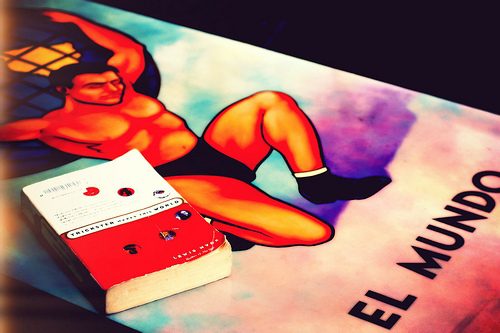Reading as resistance

Reading and the world: there is a connection.
Lots of times we think of reading as a passive activity, something that’s more or the less the opposite of doing. “Oh, she doesn’t do anything; she just sits around reading.” But can reading itself be an act of resistance?
I’ve been thinking about writing as a form of resistance for a long time. As an author, I think about what stories need telling, what events need remembering, what histories need to be recovered (or invented) to undo the silences of the past. I wrote about this theme in my top-secret third novel here.
But what about reading? With my students in my Caribbean Women’s Lit class, we work to understand how writers like Edwidge Danticat, Rosario Ferré, Michelle Cliff, Jamaica Kincaid, and more are using their words as weapons against oppressive situations they’d like to change. Is recognizing a writer’s resistance itself an act of resistance? And what if we’re reading something with a less obvious mission? Or even a text that seems to uphold the status quo?
Let’s get specific: can reading Twilight be an act of resistance? Or is it “just” entertainment?
Here’s where things get tricky–and interesting. Because it all depends on what we do as we read. If we sit back and take a book as a ride with the writer as the driver (Stephanie Meyers in this case), we’re just consumers ooohing over Edward when Meyers wants us to. I think almost all of us slip into this mode from time to time, and there’s nothing *wrong* with going along for a ride every once and a while.
We are our best selves, though, when we engage with the texts we are reading, when we ask questions, consider alternatives, play out possibilities in our minds, ponder motives. I like to think of the text as a kind of starting place for an endless variety of possible journeys rather than as an amusement park ride where everybody is locked into the same track for the exact same trip.
When we engage with a text as we read, reading becomes an act of rebellion and resistance to passivity. Reading becomes a renegade-worthy activity. Reading like this is as a way of living consciously.
That’s a key message for readers, especially teens. Because we (including my inner teen) love to resist. And to misbehave.
Psst! This whole post was inspired by a post here at Actin’ Up with Books. Thanks for getting me thinking about what it means to ACT UP via reading, Joli!




